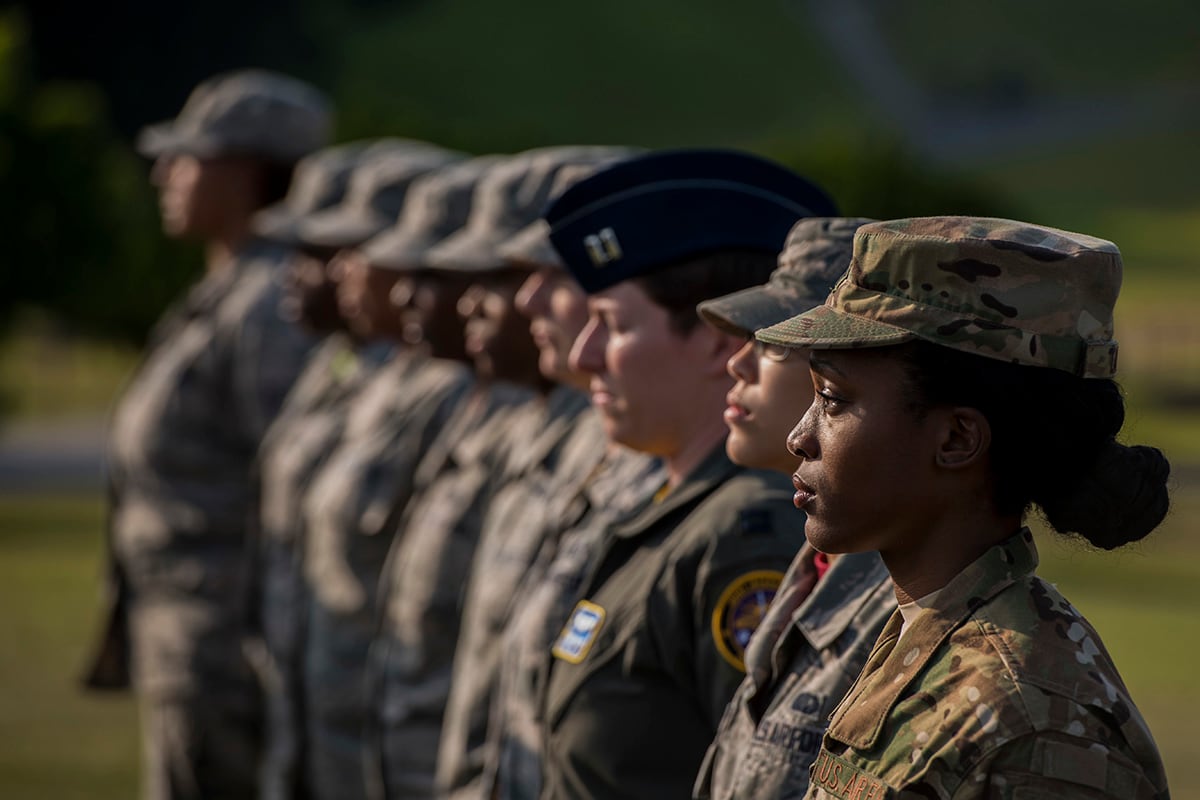Nearly 30 years ago, when George H. W. Bush was president and Dick Cheney was the secretary of defense, the Pentagon made a promise to our service members. Dozens of Navy and Marine Corps aviation officers had just been investigated for the infamous Tailhook sexual assault scandal, and America’s military leadership affirmed a “zero tolerance” policy toward sexual assault within their ranks. The military had a sexual assault problem, and pledged to solve it.
It’s painfully clear that the military has now failed at this mission by almost any metric. For years, survivor after survivor has told us the change in the system we needed to make to end this scourge — the same change that a number of our allies around the world have already made: take the adjudication of these crimes outside of the chain of command and allow trained military prosecutors to prosecute them.
Survivors weren’t alone. Retired flag officers, former commanders, and former military lawyers came forward and repeatedly asked Congress to take the necessary action. We heard excuse after excuse from the Defense Department, and despite a majority of the Senate listening to the voices of survivors, my bipartisan bill to solve this problem could not overcome a 60-vote filibuster threshold on the Senate floor.
“Give us more time” is essentially what the Pentagon said. We heard it all: They told us to let them make other reforms first, that things were under control, that they would do better, and more.
When the debate ended, the chairman of the Joint Chiefs of Staff, Martin Dempsey, said the military was “on the clock” to fix it — and indicated we would be right to bring a bill back to the floor in a year if they hadn’t solved the problem.
It’s now been five years. We have tried incremental reforms, but they haven’t worked. Not only is sexual assault still pervasive across all branches of our military, but it has dramatically increased over the last two years, and many service members still have little faith in the military justice system.
RELATED

The numbers speak for themselves. The most recent Defense Department survey reported 20,500 estimated cases of sexual assault in the military, up from 14,900 in 2016. For women, the story is even worse, with 50 percent more women in the military experiencing sexual assault compared to two years ago. At the same time, the number of cases that commanders sent to trial have decreased. Just 307 cases proceeded to trial in Fiscal Year 2018, a decrease from 406 in 2017, and 543 in 2015. And the rate of convictions continues to drop.
In one recent case, a female officer was sexually assaulted by a fellow service member. She reported the assault and submitted to a rape kit to support an investigation. The chain of command collected the DNA evidence, but instead of focusing on the sexual assault offense, they used the evidence to investigate the sexual assault survivor for inappropriate relationships with her immediate commander’s husband.
The obviously conflicted chain of command worked against her at every stage. It failed to follow laws and regulations designed to protect survivors during the investigative process — including her legal right to a special victims counsel. Worse yet, the Army dropped the sexual assault case but continued to pursue punishment of the survivor for an adultery charge, which only came to light due to the survivor’s reporting.
The command used its authority to effectively end this survivor’s career. This case is a prime example of how assigning the chain of command with both leadership and military justice authorities in complex crimes can sometimes lead to conflicts of interest, bias and negligence.
In the fight against military sexual assault, the Pentagon, by retired Chairman Dempsey’s own admission, is out of time — and should now be out of excuses. How much more evidence does Congress need to do the right thing? At this point, there is only one thing missing: the political will. And if we don’t take the action so desperately needed in the upcoming defense bill, Congress will become complicit in this failure.
RELATED

Let’s make a different choice. Let’s honor, respect and protect our men and women in uniform; let’s finally fix our broken military justice system once and for all; and let’s solve our military sexual assault crisis.
That is what my bipartisan Military Justice Improvement Act would do.
The Military Justice Improvement Act would take the prosecution of sexual assault and other serious crimes, such as murder, out of the chain of command. It would keep those crimes in the military justice system, but put the decision to prosecute them into the hands of actual military prosecutors who are trained to deal with complex legal issues.
This change would ensure that survivors of sexual assault — and the alleged perpetrators of those crimes — are both afforded the due process that they are entitled to under our Constitution. And it would in no way impede a commander’s ability to use their non-judicial authorities when appropriate or take action for military-specific crimes, like a soldier going AWOL. In fact, many experts believe that these changes would free commanders of conflicting responsibilities, improve their ability to maintain good order and discipline, and help them keep the climate under their command free of sexual harassment.
RELATED

The Military Justice Improvement Act is supported by progressive Democrats, conservative Republicans, and plenty in between. The most recent cosponsor to join is Sen. Tammy Duckworth from Illinois — a retired lieutenant colonel who was wounded flying combat missions over Iraq. It is supported by high-ranking former military officials, some of our nation’s leading veterans’ organizations, and expert legal organizations. So let’s do the right thing and pass this bipartisan bill.
Our service members are willing to sacrifice their own safety and security so that the rest of us can sleep soundly at night. We must not let them down. We must hold the Defense Department accountable and do everything we can to solve this crisis. Let’s pass the Military Justice Improvement Act and finally give our men and women in uniform a justice system that is fair, professional, and actually works.





